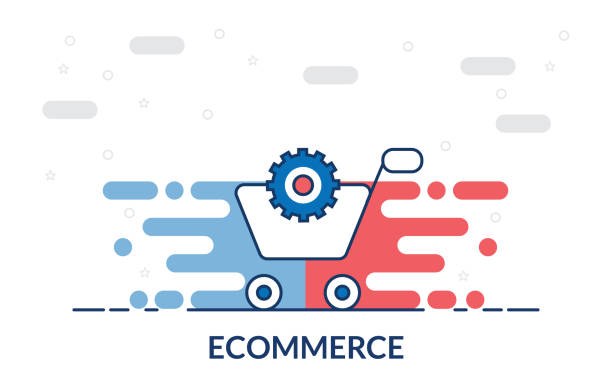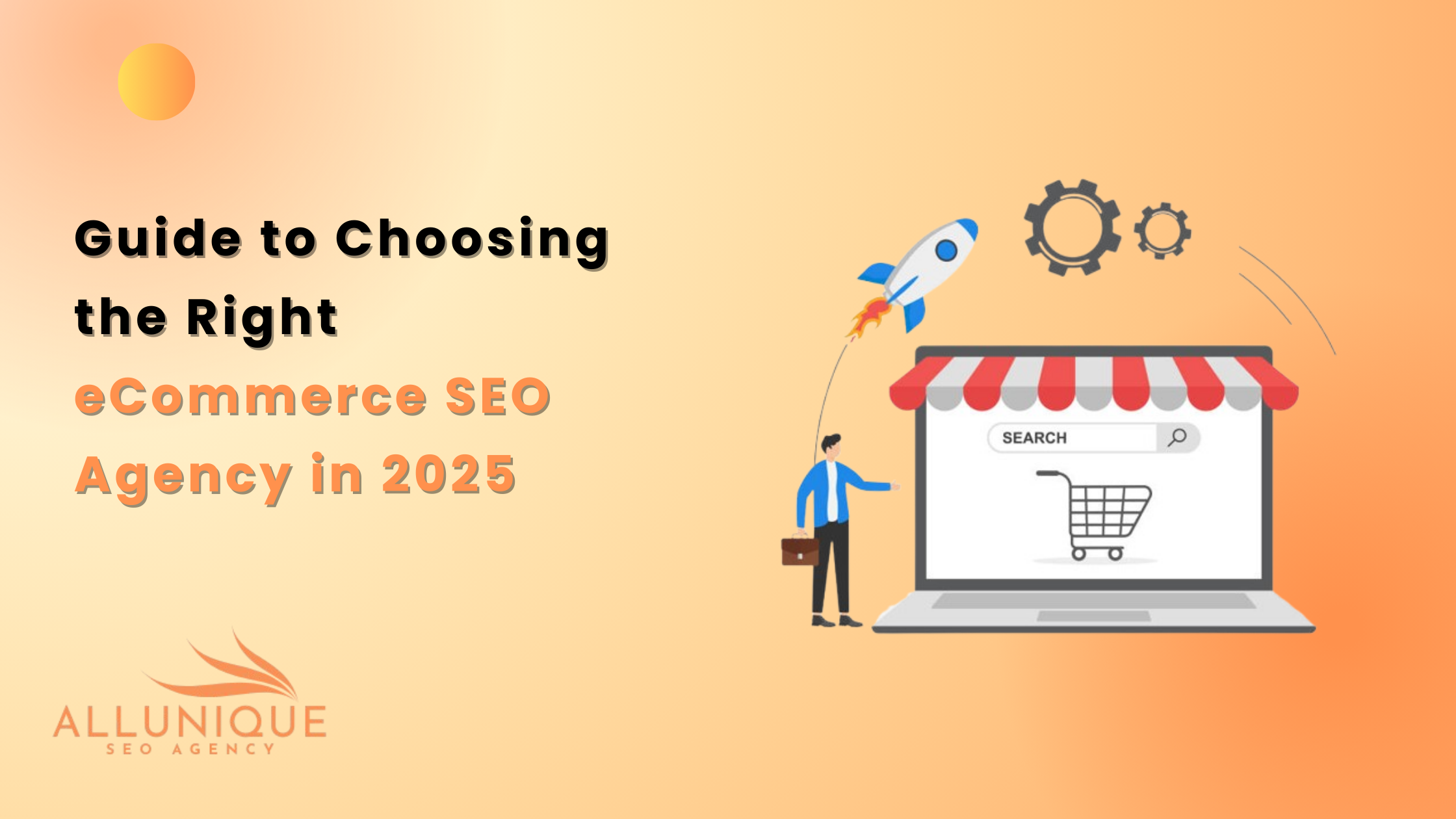eCommerce is more competitive than ever. With new online stores launching every day, relying only on ads or word of mouth isn’t enough. Search Engine Optimization (SEO) has become a critical growth engine for online stores, helping businesses attract consistent, high-quality traffic that converts into sales.
This is where a specialized eCommerce SEO agency comes in. Unlike general SEO firms, these agencies focus exclusively on the challenges and opportunities of eCommerce, ensuring your store doesn’t just attract clicks but drives revenue.
Quick Answer / Key Takeaways
- eCommerce SEO agencies specialize in optimizing online stores for traffic, rankings, and conversions.
- They provide customized strategies for platforms like Shopify, WooCommerce, and Magento.
- Choosing the right partner requires evaluating expertise, transparency, and track record.
- In 2025, AI-driven insights, data analytics, and personalization are must-have capabilities in any agency.
What Is an eCommerce SEO Agency, and How Do They Work?
An eCommerce SEO agency is a digital marketing company that focuses solely on online retail businesses. Unlike general SEO agencies, they understand the nuances of product optimization, site architecture, and the unique challenges of selling online.
They work by:
- Conducting keyword research specific to your product catalog.
- Optimizing category pages, product descriptions, and metadata.
- Improving site performance (speed, mobile, and technical SEO).
- Building high-quality links and eCommerce-focused content strategies.
The Key Benefits of Hiring a Specialized eCommerce SEO Agency

Working with an SEO agency for eCommerce gives your store unique advantages:
- Platform Expertise – Agencies understand Shopify, WooCommerce, Magento, and BigCommerce, optimizing for each platform’s strengths.
- Product & Category Optimization – They fine-tune product descriptions, category pages, and schema to boost visibility.
- Technical SEO Knowledge – From site speed to crawlability, they ensure a seamless shopping experience.
- ROI-Focused Strategies – Success is measured in conversions, sales, and customer lifetime value not just rankings.
- Industry Insights – Specialized agencies track eCommerce trends and apply proven tactics tailored to your niche.
Together, these benefits turn SEO into a direct driver of sustainable sales growth.
Signs Your Online Store Needs Professional SEO Help
If your eCommerce store is struggling, these signs indicate it’s time to hire a specialized agency:
- Declining Traffic or Sales – Competitors are capturing your audience.
- High Cart Abandonment – Site speed or poor UX may be hurting conversions.
- Competitors Outranking You – Losing visibility for key product searches.
- Difficulty Scaling Organic Traffic – DIY SEO efforts no longer drive growth.
- Overreliance on Paid Ads – Rising ad costs make organic SEO essential.
Addressing these issues early prevents lost sales and accelerates long-term growth.
Essential Services Every eCommerce SEO Agency Should Offer
When evaluating the best eCommerce SEO agency, make sure they cover these core services:
- Keyword Research for Products & Categories
Targeting buyer-intent keywords and long-tail searches to attract qualified traffic. - On-Page SEO Optimization
Optimizing product titles, meta tags, schema markup, and category pages to improve rankings and click-through rates. - Technical SEO
Fixing crawl issues, improving site speed, ensuring mobile responsiveness, and optimizing site architecture for scalability. - Product Page & Content Optimization
Creating compelling product descriptions, FAQs, and guides that both rank well and persuade buyers. - Link Building & Digital PR
Building high-quality backlinks through guest posts, influencer outreach, and press mentions to improve domain authority. - Content Marketing Strategy
Developing eCommerce-focused blogs, buying guides, and resource pages. For example, SEO agencies for fashion eCommerce often publish seasonal style guides to attract trend-focused shoppers.
How to Evaluate an eCommerce SEO Agency’s Track Record
Before choosing an eCommerce SEO company, carefully evaluate their past performance. Key factors to check include:
- Case Studies with Real Data
Look for detailed case studies showing improvements in rankings, traffic, and revenue for eCommerce clients. - Client Testimonials & Reviews
Read feedback on platforms like Clutch, G2, or Google Reviews to gauge client satisfaction. - Industry Experience
Confirm they’ve worked with eCommerce businesses in your niche (fashion, electronics, beauty, etc.), not just generic websites. - Portfolio of Results
Ask for examples of product or category keywords they’ve ranked successfully. - Transparency in Reporting
Reliable agencies share clear reports highlighting KPIs such as organic traffic, conversion rates, and ROI, not just vanity metrics. - Long-Term Success Stories
Check whether past clients saw sustainable growth, not just short-term ranking spikes.
A proven track record ensures you partner with an agency that delivers measurable, repeatable results.
Red Flags to Watch Out for When Choosing an Agency

Not every eCommerce SEO agency will be the right fit. Watch out for these warning signs before signing a contract:
- Overpromising Quick Results
SEO is a long-term process. Agencies that guarantee instant rankings are often using risky tactics. - Lack of Transparency
If they don’t share their methods, reports, or progress, it’s a sign they might be cutting corners. - No Customized Strategy
Every store is different. Be cautious if they offer the same “package” to all businesses without tailoring it to your products or industry. - Poor Communication
Delayed responses or vague answers can indicate problems with reliability and accountability. - No Proven Track Record
Avoid agencies that can’t show case studies, testimonials, or successful eCommerce results. - One-Size-Fits-All SEO
Agencies that ignore your unique business goals and just chase rankings won’t deliver lasting ROI.
The Role of Data, Analytics, and AI in Modern eCommerce SEO
In 2025, successful SEO is powered by data-driven insights and AI technology. Leading SEO eCommerce agencies use advanced tools to refine strategies and maximize ROI. Here’s how:
- Data-Driven Keyword Research
AI tools analyze massive search datasets to uncover high-intent keywords that bring qualified buyers. - Personalized Customer Experiences
Machine learning helps create tailored product recommendations and content for different shopper segments. - Predictive Analytics
Agencies use AI to forecast buying trends, allowing stores to rank early for products before they peak in demand. - Automated Content Optimization
AI assists in improving product descriptions, blog posts, and metadata for better rankings and conversions. - Advanced Reporting & Insights
Real-time dashboards track organic traffic, conversions, and revenue, helping brands make smarter decisions.
By blending data, analytics, and AI, eCommerce SEO becomes more precise, scalable, and future-ready.
eCommerce SEO Pricing Models: What to Expect in 2025
Pricing varies widely among eCommerce SEO agencies, but understanding the common models helps you budget wisely. Here are the main options:
- Hourly Rates
- Typically range from $100–$300 per hour.
- Best for short-term consultations or technical fixes.
- Monthly Retainers
- The most popular model usually costs $2,500–$10,000 per month, depending on store size.
- Covers ongoing keyword research, on-page SEO, content, and reporting.
- Performance-Based Pricing
- Fees tied to results, such as rankings, traffic growth, or revenue increases.
- Attractive for smaller businesses but may include higher commissions.
- Project-Based Packages
- One-time projects like site audits, migrations, or category page optimization.
- Good for stores that need fixes but not full-scale management.
Always ask about hidden fees (setup costs, content charges, extra reports). The best eCommerce SEO service provider will be transparent and clear about pricing.
Questions to Ask Before Hiring an eCommerce SEO Agency
Before choosing a partner, ask these key questions to ensure they’re the right fit for your online store:
- What’s Your Experience with eCommerce Platforms?
Make sure they’ve worked with Shopify, WooCommerce, Magento, or your specific platform. - Do You Specialize in My Industry?
Ask if they have experience with niches like fashion, electronics, or beauty, since strategies differ by industry. - How Do You Measure Success?
A strong agency should focus on conversions and revenue, not just rankings or traffic numbers. - Can You Share Case Studies or Past Results?
Request real-world examples of eCommerce stores they’ve helped grow. - What’s Your Reporting Process?
Ensure they provide transparent, regular reports with clear KPIs. - What’s Your Long-Term SEO Strategy?
Ask how they plan to scale your organic growth over 12–18 months.
These questions will reveal whether an agency is results-driven, transparent, and aligned with your business goals.
Comparing In-House SEO vs. Outsourcing to an Agency
When planning SEO, you’ll face the choice between building an in-house team or partnering with an SEO eCommerce agency. Each option has pros and cons:
- In-House SEO
- Pros: Full control over strategy, immediate communication, and alignment with your brand’s culture.
- Cons: High hiring costs, limited expertise in all areas, and slower scalability.
- Outsourcing to an Agency
- Pros: Access to a team of specialists (technical SEO, content, link building), advanced tools, and proven frameworks.
- Cons: Less day-to-day control and reliance on external communication.
- Hybrid Approach
- Some businesses keep a small in-house team for strategy while outsourcing execution to agencies.
- Balances control with expertise and scalability.
For fast-growing eCommerce stores, outsourcing often offers the best ROI, while established brands may benefit from a hybrid model.
How to Align Your Business Goals with an Agency’s Strategy
To maximize results, your eCommerce SEO agency must align its efforts with your broader business objectives. Here’s how to ensure both sides work in sync:
- Define Clear KPIs
- Set measurable goals like organic traffic growth, conversion rate improvement, or revenue increases.
- Understand Your Sales Funnel
- Share insights on customer journeys (from awareness to purchase) so the agency tailors strategies for each stage.
- Regular Communication
- Hold monthly or biweekly check-ins to review progress and adjust campaigns based on performance.
- Customized SEO Roadmap
- Ensure the agency builds a strategy around your unique goals (e.g., boosting category sales or expanding into new markets).
- Transparent Reporting
- Reports should track not just rankings but also sales impact and ROI.
A well-aligned partnership ensures SEO isn’t just about traffic it directly fuels your business growth and revenue goals.
Common Mistakes to Avoid When Working with an SEO Partner
Even after hiring the best eCommerce SEO Company, many businesses limit results by making avoidable mistakes. Here are the most common pitfalls:
- Expecting Instant Results
- SEO is a long-term game. Expect improvements within months, not weeks.
- Ignoring Technical Recommendations
- Agencies may suggest fixes for site speed, mobile responsiveness, or crawlability; ignoring them weakens results.
- Not Sharing Product Updates
- Failing to provide new product details or seasonal changes leaves your store unoptimized.
- Focusing Only on Rankings
- High rankings mean little without sales growth. Always track conversions and ROI, not just traffic.
- Poor Communication
- Delayed feedback or lack of collaboration slows progress. Treat your agency as a partner, not just a vendor.
Avoiding these mistakes ensures your SEO investment delivers consistent, scalable eCommerce growth.
Future Trends Shaping eCommerce SEO in 2025 and Beyond
The SEO landscape is evolving rapidly, and eCommerce brands must stay ahead of new trends. Here’s what to expect:
- Voice Search Optimization
- More shoppers use smart speakers and mobile assistants to find products. Optimizing for conversational, long-tail queries is essential.
- Visual Search Growth
- Platforms like Google Lens allow users to search by image. Optimizing product photos with alt text and structured data will be key.
- AI-Driven Personalization
- AI tools deliver smarter product recommendations, personalized search results, and predictive shopping experiences.
- Sustainable & Ethical SEO
- Shoppers increasingly value eco-friendly brands. Highlighting sustainability efforts can improve both trust and rankings.
- Evolving Google Algorithms
- Google is prioritizing user experience signals, page speed, mobile usability, and content depth. eCommerce brands must adapt quickly.
Staying ahead of these trends ensures your store remains competitive and future-ready.
Final Checklist: Choosing the Right eCommerce SEO Agency
Before committing to an eCommerce SEO agency like Allunique SEO Agency, make sure they check all the right boxes. Review their case studies and testimonials to confirm proven results, and verify they have experience with your eCommerce platform and industry niche. Ensure their strategy is customized to your store’s needs, not a generic template. Look for transparent pricing and reporting, and confirm they focus on long-term growth, not quick, risky wins. The right choice becomes a reliable partner in scaling your eCommerce success.
FAQs
1. What is an eCommerce SEO agency?
An eCommerce SEO agency is a specialized digital marketing company that helps online stores improve their search engine rankings, drive more qualified traffic, and increase sales. Unlike general SEO firms, they focus specifically on product optimization, category pages, site structure, and conversion-focused strategies customized for eCommerce businesses.
2. Is SEO worth it for eCommerce stores in 2025?
Yes, SEO is still one of the most cost-effective marketing strategies for eCommerce stores in 2025. Paid ads stop driving traffic when you stop spending, but SEO builds long-term visibility, attracts high-intent buyers, and reduces customer acquisition costs over time.
3. How much does an eCommerce SEO agency cost?
The cost of hiring an eCommerce SEO agency varies based on the size of your store, target market, and competition. On average, small to mid-sized businesses invest between $500 to $5,000 per month, while larger enterprises may spend more for comprehensive SEO campaigns.
4. What is the difference between SEO and eCommerce SEO?
General SEO improves overall website rankings, but eCommerce SEO is more specialized. It focuses on optimizing product pages, categories, site navigation. schema markup, and user experience to ensure higher rankings for transactional keywords that drive sales.
5. How long does it take for eCommerce SEO to work?
SEO is a long-term investment. Most eCommerce stores begin to see noticeable improvements in traffic and rankings within 3 to 6 months, but achieving sustainable growth and top positions can take 6–12 months depending on competition and site condition.



